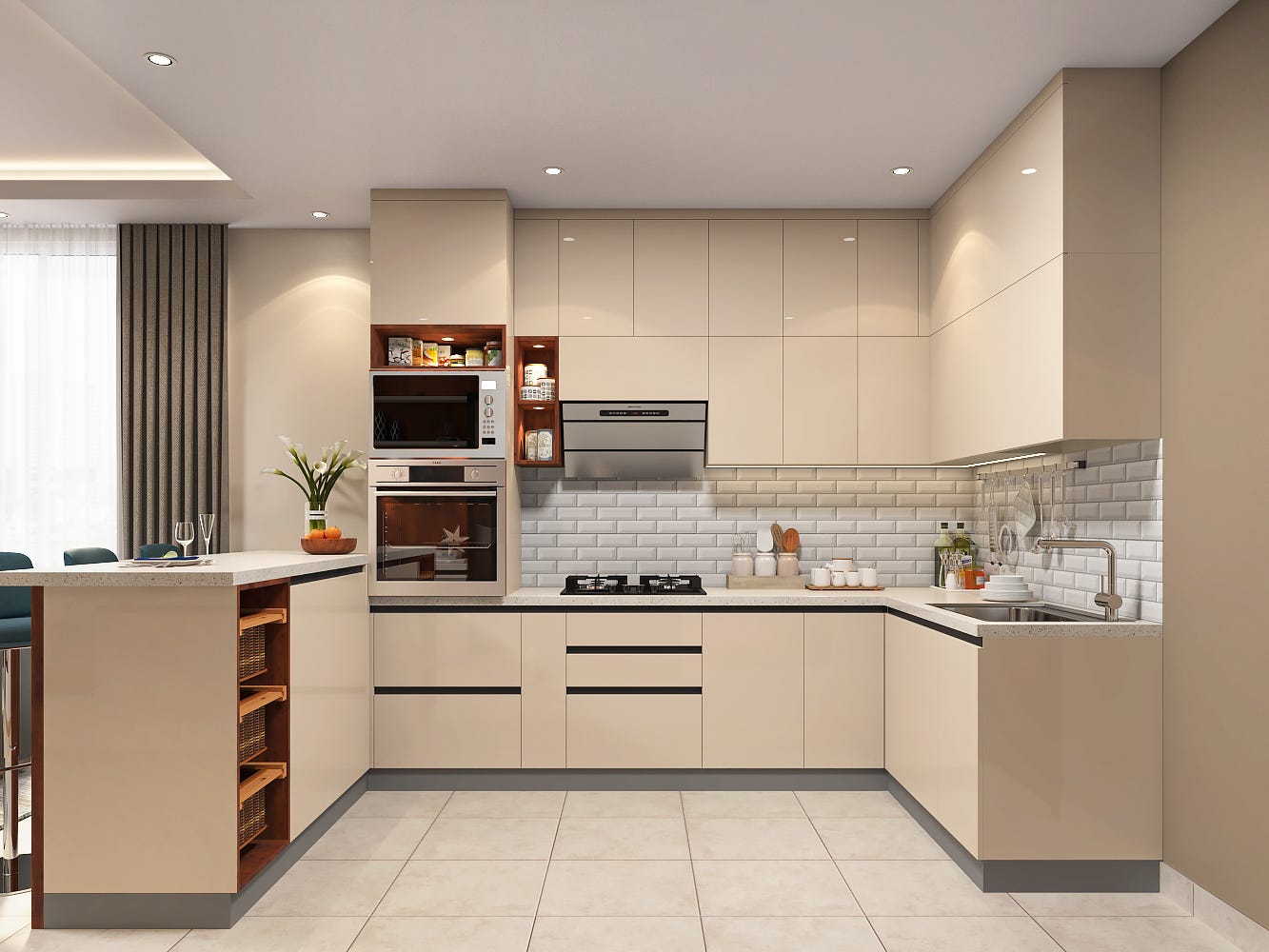Kitchen Interior Designers

Contact : +919844592982
Kitchen interior design plays a crucial role in creating a functional, aesthetically pleasing, and comfortable space that enhances the overall experience of cooking and dining. Kitchen interior designers specialize in optimizing these spaces by blending creativity with practicality, making the kitchen not only a place to prepare meals but also a central hub for social interaction and relaxation. If you're looking to redesign or renovate your kitchen, engaging professional kitchen interior designers can help bring your vision to life, ensuring that both style and efficiency are balanced.
The Role of Kitchen Interior Designers
Kitchen interior designers are professionals with expertise in spatial design, color schemes, materials, and functionality. Their primary focus is on understanding the client’s needs, preferences, and lifestyle to create a customized kitchen space. Whether you’re looking for a modern, minimalist kitchen or a rustic, traditional one, these designers can craft a space that fits your desired aesthetic while maximizing space utility.
One of the key aspects that designers focus on is the kitchen layout. The "kitchen work triangle" (the relationship between the stove, sink, and refrigerator) is a concept that ensures efficient movement within the kitchen. Designers optimize this triangle, making sure that the space is practical and easy to navigate. Additionally, they consider storage solutions, ensuring that cabinets, shelves, and pantries are well-placed to store kitchen essentials while maintaining easy access.
Design Elements in Modern Kitchens
-
Space Planning: A well-organized kitchen begins with smart space planning. Designers assess the kitchen’s dimensions and design layouts that utilize every inch effectively. They consider whether the kitchen should have an open-plan design, an island, or a more traditional layout based on the space and client’s requirements.
-
Storage Solutions: Kitchen designers focus on innovative storage solutions to minimize clutter. Cabinets with deep drawers, pull-out shelves, and corner racks are commonly used to maximize storage. Custom cabinetry is another option that can be tailored to specific needs.
-
Lighting: Good lighting is essential in any kitchen. Designers create layered lighting plans that combine task lighting (for cooking areas), ambient lighting (for mood), and accent lighting (to highlight certain design features). LED lights under cabinets or pendant lights above islands are common choices.
-
Materials & Finishes: The choice of materials for countertops, backsplashes, flooring, and cabinets can dramatically influence the look and durability of a kitchen. Designers often suggest high-quality, durable materials like granite, quartz, and stainless steel for modern kitchens, while rustic kitchens may feature wood, stone, or tile elements.
-
Appliances & Technology: Modern kitchen design integrates high-tech appliances and smart home technology. Designers consider the placement and style of appliances to blend with the overall design, ensuring they don’t disrupt the aesthetics but remain accessible.
-
Color Schemes: A well-chosen color palette can bring warmth, vibrancy, or serenity to a kitchen. Whether it's classic white, deep hues like navy and forest green, or neutral tones, designers balance colors with materials, lighting, and textures to create a cohesive look.
Customization Based on Lifestyle
Kitchen interior designers tailor designs based on the lifestyle of the client. For example, a family with children might need a spacious kitchen with durable, low-maintenance surfaces, while a couple who loves to entertain might prioritize an open-plan layout with a large island for socializing. For avid home chefs, designers may incorporate professional-grade appliances and specialized storage for cookware and utensils.
Sustainability in Kitchen Design
Many homeowners are now seeking eco-friendly options for their kitchens. Kitchen interior designers often recommend sustainable materials like bamboo, recycled glass countertops, and energy-efficient appliances. This not only reduces the environmental impact but also helps in creating a healthier kitchen environment.
Why Hire a Professional Kitchen Interior Designer?
The benefits of hiring a kitchen interior designer include access to industry knowledge, innovative design solutions, and connections to suppliers and contractors. Designers stay updated on the latest trends and technology, and they can help homeowners avoid common design mistakes. Their expertise ensures that the project stays on budget and within the timeline, providing a hassle-free experience for the client.
In conclusion, kitchen interior designers play an essential role in transforming kitchens into spaces that are not only beautiful but also highly functional. Their attention to detail, creativity, and understanding of ergonomics ensure that the heart of the home truly becomes a welcoming and efficient space tailored to your unique needs.
